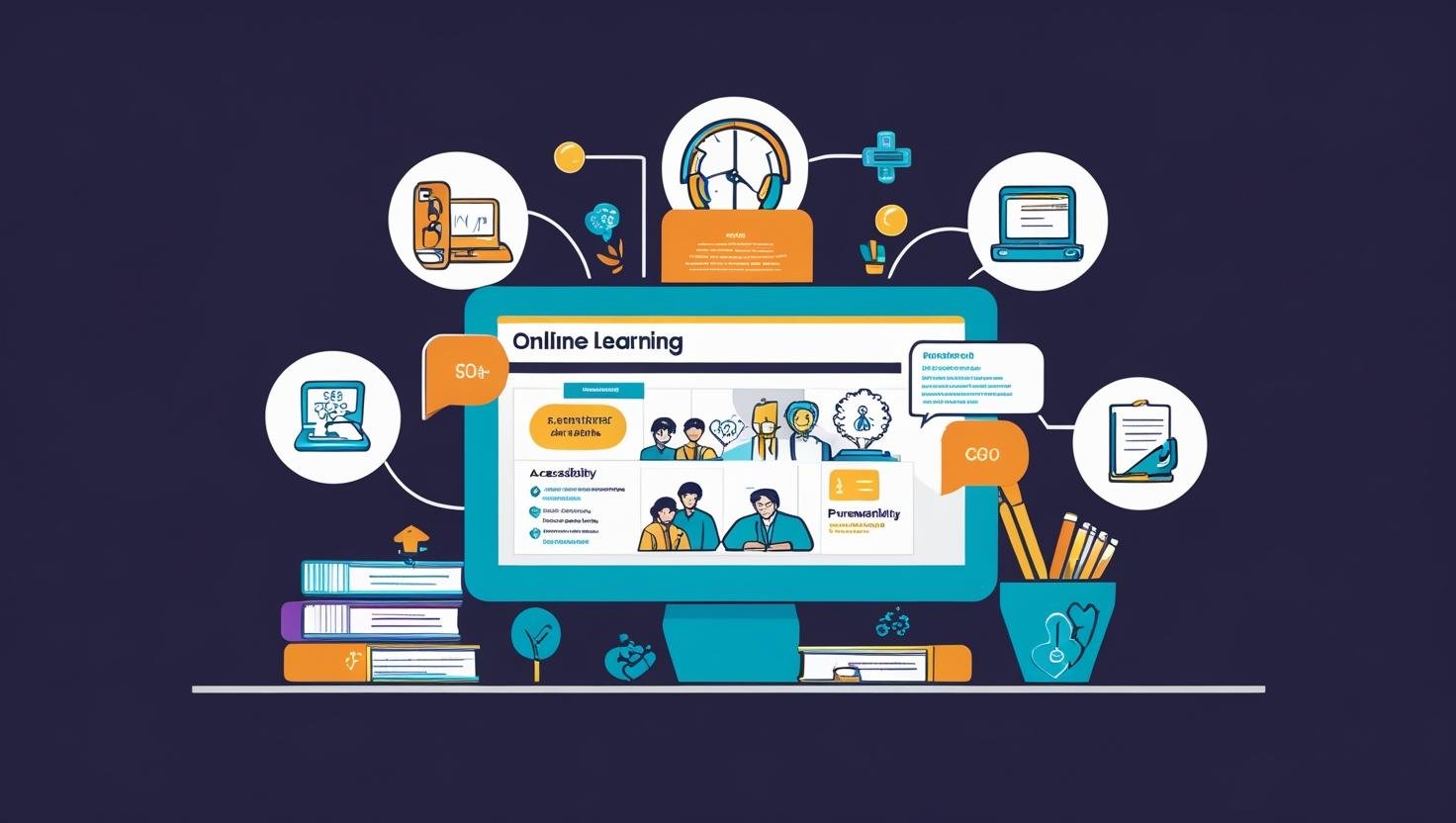Flexibility and Convenience
One of the most prominent advantages of online learning is the unparalleled flexibility it offers to students. Unlike traditional classroom settings with fixed schedules, online courses allow learners to choose when and where they engage with their educational materials. This adaptability is particularly beneficial for individuals who are juggling multiple responsibilities, such as working professionals, parents, or students involved in extracurricular activities.
For working professionals, online learning presents an opportunity to further their education without compromising their job responsibilities. Many courses are designed to be accessed at any time, enabling these individuals to study during their breaks or after work hours. This allows them to enhance their skills and advance in their careers while managing a demanding work schedule.
Parents, especially those with young children or those balancing their roles as caregivers, also find the flexibility of online learning to be advantageous. The ability to attend classes and complete assignments from home means that they can manage their family obligations while still pursuing educational goals. This format eliminates the need for travel to campus, saving time and allowing parents to be more present for their families.
Furthermore, online learning accommodates students who have diverse commitments or varying life circumstances. For instance, those involved in sports, performing arts, or other time-intensive activities can select courses that fit around their schedules. This means they do not have to choose between their passions and their education; rather, they can successfully integrate both aspects into their lives.
In summary, the flexibility and convenience of online learning make it an attractive option for a wide range of individuals. By accommodating different schedules and responsibilities, online education not only promotes accessibility but also fosters a more inclusive learning environment for all demographics.
Access to a Global Education
The advent of online learning has revolutionized the educational landscape, effectively dismantling geographical boundaries that once limited access to quality education. Today, students can enroll in courses offered by prestigious institutions worldwide, which was once a distant dream for many. This unprecedented access allows learners to pursue programs and specializations that may not be available locally, enriching their educational journey.
Global online platforms host a diverse range of courses, spanning numerous disciplines such as technology, arts, sciences, and business management. This variety means that students are no longer confined to the curriculum of their local institutions but can select programs that best align with their interests and career aspirations. For instance, a student in a rural area can now access leading-edge courses from universities in urban centers or from renowned international educators, thus expanding their horizons significantly.
Moreover, the benefits of global access to education extend beyond the academic realm. Online learning fosters cross-cultural interactions, where students from different parts of the world can engage with one another, share perspectives, and collaborate on projects. These interactions not only facilitate a deeper understanding of diverse cultures but also create invaluable networking opportunities. For example, a student in Nigeria may collaborate on a project with peers in Japan and Canada, forging relationships that can benefit their professional careers in the future.
Real-life stories abound, showcasing how individuals have harnessed the power of online learning to achieve their educational goals. One such inspiring example is a young entrepreneur from Brazil who, through online courses, gained expertise in digital marketing from experts globally. This knowledge propelled her startup, leading to connections with mentors from different countries. Thus, online education serves as a powerful equalizer, creating pathways for countless students to access global opportunities that were previously unattainable.
Cost-Effectiveness
One of the prominent advantages of online learning is its inherent cost-effectiveness compared to traditional educational formats. This affordability manifests in various ways, significantly reducing the financial burden on students and lifelong learners alike. Notably, lower tuition fees are a primary factor; many online institutions offer competitive pricing structures, often making quality education far more accessible than conventional means.
In addition to reduced tuition, online education eliminates the need for commuting, which can amount to substantial cost savings. Students no longer face transportation expenses, whether from gas, public transportation, or vehicle maintenance. This not only benefits the students’ wallets but also aligns with a more sustainable lifestyle by decreasing the carbon footprint associated with daily commutes to campuses.
Furthermore, the reduced overhead associated with online learning extends to campus amenities that traditional education typically requires. Costs related to student housing, meal plans, and campus facilities can be considerable and are often unavoidable in a traditional setting. However, online learners can manage their expenditures more flexibly by choosing their own study environments, whether it be from home or at a location of their convenience.
Another factor contributing to the economic advantages of online learning is the wealth of free or low-cost resources available to students. Many platforms provide access to a variety of educational materials, courses, and even full degree programs at minimal costs, fostering a culture of lifelong learning. This accessibility enables a broader audience to engage with educational content, empowering individuals to expand their knowledge and skills without incurring significant debt.
Ultimately, the financial benefits of online learning create an environment conducive to education for all, encouraging ongoing personal and professional development while alleviating some of the economic challenges traditionally associated with higher education.
Personalized Learning Experience
One of the most compelling benefits of online learning is the opportunity it provides for a personalized learning experience. Unlike traditional classroom settings, which often follow a fixed curriculum and pace dictated by the instructor, online learning platforms leverage adaptive technologies to cater to individual students’ needs. Students can set their own learning pace, allowing them to pause and revisit lectures or materials as necessary. This flexibility strengthens their understanding of the subject matter and ensures that they do not miss critical concepts.
Many online courses now utilize adaptive assessments, which intelligently adjust to each learner’s progress and engagement levels. For example, if a student excels in certain topics, the online platform can present more advanced materials to further challenge them; conversely, if a learner struggles, the system can provide additional resources to reinforce foundational concepts. This bespoke approach not only enhances learning outcomes but also promotes higher retention rates, as learners can engage with content that aligns with their understanding and capabilities.
Research supports the effectiveness of personalized learning experiences in online education. A study published in the “Journal of Educational Psychology” indicates that students who engage with personalized content can outperform their peers in traditional settings. Furthermore, adaptive learning systems can identify knowledge gaps in real-time, allowing instructors to intervene or adjust learning plans as required. Consequently, this enhances the overall educational journey, creating a learner-centric environment where individuals can thrive according to their unique educational needs.
By integrating personalized strategies into online learning, educational institutions can foster a more engaging and effective learning atmosphere, resulting in improved understanding and satisfaction among students. This benefit of online education highlights how technology is transforming the landscape and offering tailored solutions that resonate with learners of all ages.


